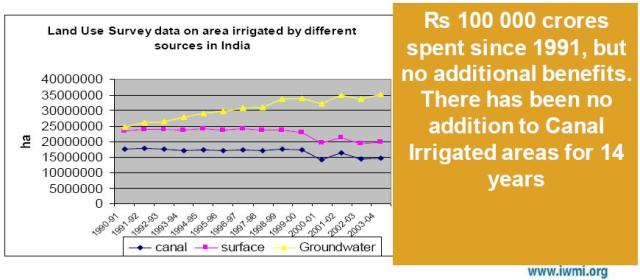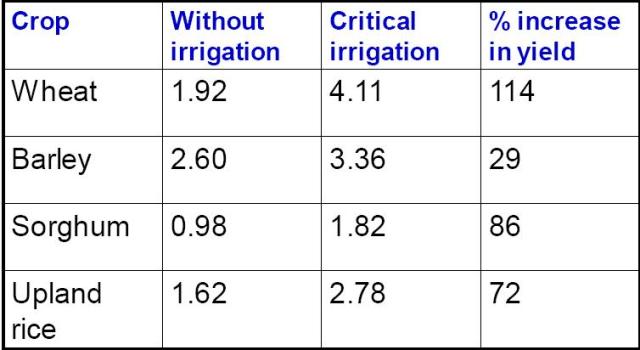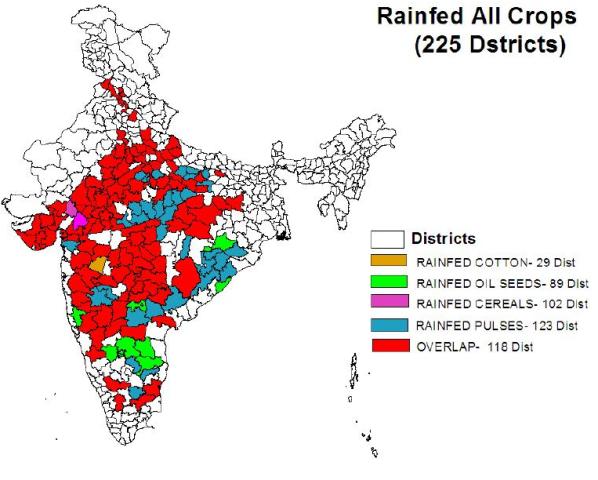Bharat Sharma (Photo:Praveena Sridhar)
Bharat Sharma of IWMI presented his case for a larger perspective on the water crisis and for a Nationwide Water Harvesting Initiative. Harvesting rainwater now, is an imperative for a groundwater dependent and once groundwater abundant India.
And what makes him arrive at this? His institute's findings on public expenditure on water infrastructure like irrigation canals and incentives in the form of subsidies to select regions/states. I share some slides of his presentation in this post.
He observes that scarcity of water affect those whose livelihoods are dependent on water (mainly farmers). In relation to this, an individual's capacity to control and regulate water resources is far too limited. The commonplace response to this since decades, has been creation of large scale irrigation canals and water projects. Several quarters of farmers have been missed out by these canals, and created an imbalanced situation today!
Under these circumstances, access or no access to water determines whether you would be a prosperous farmer or the one who would never be able to get even with his debts, by continuous failing of his crops! This indeed has led to a bold and visible stratification in the society across the rural landscape of India.
Bharat's data has more to reveal.

Landuse Survey Data showing area irrigated by different sources of water in India (Credit:IWMI)

On how availability of water impacts productivity/yield of different crops (Credit:IWMI)

Number of districts in India with rainfed agriculture (Credit: IWMI)
Do these findings give any hint about what ails our farmers?
How intricately income, livelihood, povery and water security are linked?
What is the intensity of the looming water crisis and what its implications are?
And finally, Water Crisis: Should it be dealt in a silo like manner, without accounting for relations with poverty and livelihood? Add gender to it!
Download Bharat Sharma's presentation here (pdf, 2.4 mb)